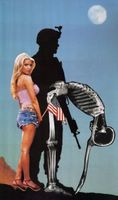We do not intend our natural resources to be exploited by the few against the interests of the many.It is entirely shameful that so few have headed their words - not the least of which are members of our current governmental incarnation I call the W, Rove and Co.
So, I thought I would leave you all with some excerpts from the book I just picked up - Confessions of an Economic Hit Man - to discuss whilst I'm away:
From Page xii:
The United States spends over $87 billion conducting a war in Iraq while the United Nations estimates that for less than half that amount we could provide clean water, adequate diets, sanitation services, and basic education to every person on the planet.From page xvii:
And we wonder why terrorists attack us?
That is what we EHMs do best: we build global empire. We are an elite group of men and women who utilize international financial organizations to foment conditions that make other nations subservient to the corporatocracy running our biggest corporations, our government, and our banks. Like our counterparts in the Mafia, EHMs provide favors. These take the form of loans to develop infrastructure - electric generating plants, highways, ports, airports, or industrial parks. A condition of such loans is that engineering and construction companies from our own country must build all these projects. In essence, most of the money never leaves the United States; it is simply transferred from banking offices in Washington to engineering offices in New York, Houston, or San Francisco...From page xx:
...the loans are so large that the debtor is forced to default on its payments after a few years. When this happens, then like the Mafia we demand our pound of flesh. This often includes one or more of the following: control over United Nations votes, the installation of military bases, or access to precious resources such as oil or the Panama Canal. Of course, the debtor still owes us the money - and another country is added to our global empire.
The subtlety of this modern empire building puts the Roman centurions, the Spanish conquistadors, and the eighteenth- and nineteenth-century European colonial powers to shame. We EHMs are crafty; we learned from history. Today we do not carry swords...
...We are on the record, in the open. Or so we portray ourselves and so we are accepted. It is how the system works. We seldom resort to anything illegal because the system itself is built on subterfuge, and the system is by definition legitimate.
However - and this is a very large caveat - if we fail, an even more sinister breed steps in, ones we EHMs refer to as the jackals, men who trace their heritage directly to those earlier empires. The Jackals are always there, lurking in the shadows. When they emerge, heads of state are overthrown or die in violent "accidents." And if by chance the jackals fail, as they failed in Afghanistan and Iraq, then the old models resurface. When the jackals fail, young Americans are sent in to kill and to die.
Blog on All and I'll be typing more upon my return.




